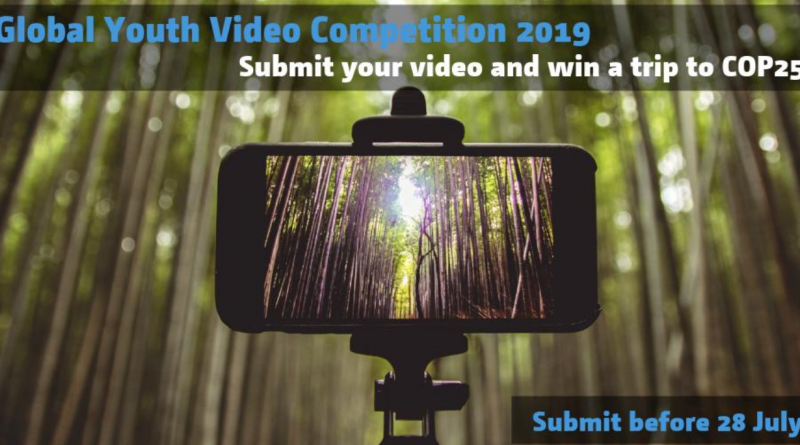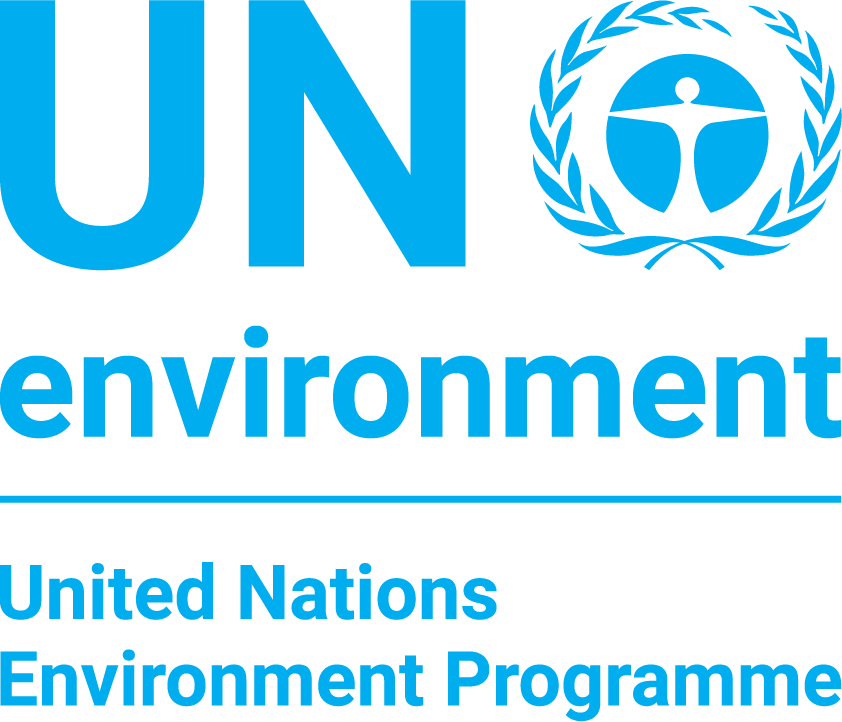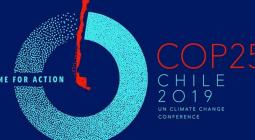2019 Global Youth Video Competition Now Open for Applications.

2019 Global Youth Video Competition Now Open for Applications
https://unfccc.int/news/2019-global-youth-video-competition-now-open-for-applications
Abierta la inscripción al Concurso Mundial de Videos para Jóvenes 2019
https://unfccc.int/es/news/abierta-la-inscripcion-al-concurso-mundial-de-videos-para-jovenes-2019
Concours vidéo mondial de la jeunesse 2019 : les candidatures sont ouvertes !
https://unfccc.int/fr/news/concours-video-mondial-de-la-jeunesse-2019-les-candidatures-sont-ouvertes
Bonn, UN Climate Change News, 24 May 2019 – Young people from around the world are encouraged to submit videos for the 2019 Global Youth Video Competition showcasing positive solutions on three themes: Nature-based Solutions for Food and Human Health; Cities and Local Action to Combat Climate Change; and Nature-Based Solutions to balance the use of land for people and ecosystems.
This year, the fifth edition of the video competition aims to mobilize global youth around the Climate Action Summit organized in September by the United Nations Secretary-General António Guterres. The competition is led by the secretariats of the three Rio Conventions: the United Nations Framework Convention on Climate Change (UNFCCC), the Convention on Biological Diversity (CBD) and the United Nations Convention to Combat Desertification (UNCCD), in partnership with the GEF Small Grants Programme (SGP), implemented by the United Nations Development Programme and Television for the Environment (tve).
One winner will be selected per category. The three winners will attend the UN Climate Change Conference (COP25) in Santiago, Chile, in December 2019. The winning videos will be screened in front of a global audience at the conference. In addition, the videographers will have the opportunity to work with UN Climate Change’s communications team, covering highlights of the conference.
“Youth are powerful agents of change,” said UN Climate Change (UNFCCC) Executive Secretary Patricia Espinosa. “I am looking forward to see their energy and creativity reflected in all three themes of the competition this year which we have developed in close partnership with the Convention to Combat Desertification and the Convention on Biological Diversity. I'm also looking forward to see the voice of youth reflected at the September Climate Action Summit and the December Climate Change Conference in Chile in many creative and impactful ways.”
CBD Executive Secretary Cristiana Paşca Palmer said: “Young people have the capacity to influence adults and convince them to act now, and before it is too late They have the drive and motivation to help find solutions to environmental challenges and transform damaging habits into beneficial actions for life on earth. The CBD has always encouraged youth to take action and bring innovative and creative solutions for biodiversity. I look forward to working with our sister Conventions in disseminating the youth’s messages about the three themes of the competition to actors at all levels.”
“More and more young people are voicing concern about environmental degradation. Their proposals for solving seemingly intractable environmental issues are often beyond our imagination. With this video competition, we will see the world through their eyes, and get inspiration to protect and restore valuable land and ecosystems to sustain us all today, while securing their future,” said Ibrahim Thiaw, Executive Secretary of the UN Convention to Combat Desertification.
Entrants must be between 18 and 30 years of age and should submit a maximum 3-minute video by 28 July 2019 on one of the themes outlined above dealing with nature-based solutions and local climate action.
Videos for the category Nature-based Solutions for Food and Human Health could present initiatives aimed to conserve land and water resources for food production; safeguard clean water sources; the production and consumption of healthy foods rich in vitamins and minerals; and support traditional food cultures and knowledge. Examples could include the production of locally varied fruits and vegetables, sustainable fishing practices, reducing food waste and composting food scraps, reducing the use of pesticides and fertilizers, campaigning to produce behavioral changes related to sustainable consumption, and avoiding single-use plastics.
In the category Nature-Based Solutions to balance the use of land for people and ecosystems, submissions can include videos on the restoration of landscapes, forests, natural habitats and ecosystems, in addition to themes relating to emissions reductions from sustainable consumption, support for indigenous groups to protect their communal lands, the use of sustainable land management techniques, both traditional and innovative, and supporting sustainable food production systems to improve the land and its biodiversity. A selection of the videos will be shown at the 14th session of the Conference of the Parties to the UNCCD to be held from 2 to 13 September in New Delhi, India.
For the Cities and Local Action to combat Climate Change category, videos can feature initiatives that campaign to produce behavioral changes, that develop more sustainable commuting, that produce merchandise and food locally, that provide services to people affected by climate change, that reduce energy use in buildings, that reclaim green spaces, that create wealth from waste, or implement shared economy principles.
Judging panels composed of representatives of the three secretariats will pre-select a short list of videos in each category based on the criteria of content, innovation, originality, impact, and technical expertise. Pre-selected videos will then be posted online to be voted on by the public.
The 2019 edition of the Global Youth Video Competition is organized with the support from BNP Paribas Foundation. The competition will be implemented through the tve platform.
- For more information and to apply online, please visit biomovies.tve.org
- Digital assets about the competition are available on a dedicated Trello board
- Contact: youth@unfccc.int
About the UNFCCC/ UN Climate Change
With 197 Parties, the United Nations Framework Convention on Climate Change (UNFCCC) has near universal membership and is the parent treaty of the 2015 Paris Climate Change Agreement. The main aim of the Paris Agreement is to keep a global average temperature rise this century well below 2 degrees Celsius and to drive efforts to limit the temperature increase even further to 1.5 degrees Celsius above pre-industrial levels. The UNFCCC is also the parent treaty of the 1997 Kyoto Protocol. The ultimate objective of all agreements under the UNFCCC is to stabilize greenhouse gas concentrations in the atmosphere at a level that will prevent dangerous human interference with the climate system, in a time frame which allows ecosystems to adapt naturally and enables sustainable development.
See also: http://unfccc.int
Follow UNFCCC on Twitter: @UNFCCC| français: @CCNUCC | español: @CMNUCC | français: @CCNUCC | Deutsch @UNKlima
UNFCCC Executive Secretary Patricia Espinosa on Twitter: @PEspinosaC
UNFCCC on Facebook: facebook.com/UNclimatechange
UNFCCC on LinkedIn: UNFCCC
UNFCCC on Instagram: @UNFCCC
28 May 2019




